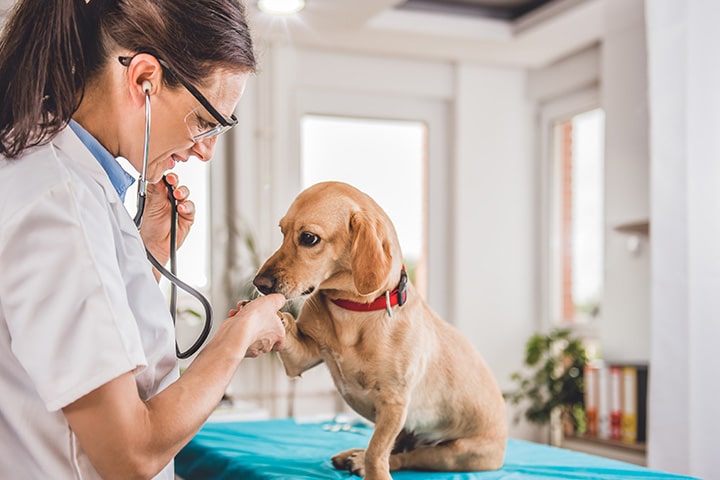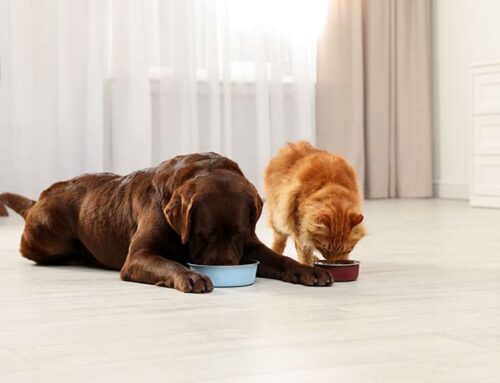Do Indoor-Only Pets Need Vaccinations?
Top 3 Takeaways – Indoor Pets & Vaccines
Introduction – Are Vaccines Still Needed for Pets Who Stay Indoors?
Many well-intentioned pet owners assume their pets don’t need vaccines because they never go outside. It seems logical—if a pet isn’t exposed to other animals or environments, how could they possibly get sick?
But here’s the truth: indoor-only pets are still at risk for exposure to serious infectious diseases. At Bliss Animal Hospital, we often see cats and dogs who become ill despite living indoors their entire lives. The risks are lower than for outdoor pets, but they’re not zero—and that’s why the core vaccine protocol remains essential.
How Do Indoor Pets Get Exposed to Disease?
Pathogens are sneaky. They don’t need a leash, a backyard, or a dog park to find your pet. Common ways indoor pets are exposed include:
1. Human Traffic
Family members can unknowingly bring viruses, bacteria, and fungal spores into the home. Parvovirus, for example, can live on shoes and floors for months—and it only takes a tiny amount to infect a puppy.
2. Open Windows, Doors, and Screens
Wild animals (especially bats, raccoons, and rodents) may carry rabies and enter through open windows, balconies, or even chimneys.
3. Vet Visits and Grooming
Routine vet care, boarding, or grooming visits can expose pets to other animals—even if they’re kept in separate areas.
4. Emergencies
If your indoor-only pet ever escapes (even once), they’ll be completely unprotected. Lost or frightened pets are more likely to come into contact with infected animals or environments.
Core Vaccines Are Still Recommended for All Pets
Veterinarians classify vaccines into two main categories: core and non-core.
Here’s a quick overview:
Core Vaccines for Indoor Dogs
| Vaccine | Disease Prevented | Why It’s Important |
|---|---|---|
| DHPP | Distemper, Hepatitis, Parvovirus, Parainfluenza |
These viruses can survive on surfaces for weeks and are highly contagious—even indoors. |
| Rabies | Rabies virus | Fatal and required by law in California. Transmission can occur from bats or other wildlife entering the home. |
Core Vaccines for Indoor Cats
| Vaccine | Disease Prevented | Why It’s Important |
|---|---|---|
| FVRCP | Feline Viral Rhinotracheitis, Calicivirus, Panleukopenia |
These airborne viruses are common even in single-cat households. |
| Rabies | Rabies virus | Legally required in many areas and essential for protecting your family and community. |
Real Cases of Disease in Indoor Pets
We’ve seen multiple cases where fully indoor pets contracted serious illnesses due to:
These aren’t rare horror stories—they’re reality. Vaccines create a crucial layer of protection for the “what if” moments in life.
Titer Testing: An Option for Vaccine-Conscious Owners
If you’re worried about “over-vaccination,” antibody titer testing can be a solution. These blood tests measure existing immunity from prior vaccinations and help determine whether a booster is necessary.
At Bliss Animal Hospital, we offer titers for:
Titers are especially useful for older pets, immunocompromised pets, or those with a previous adverse vaccine reaction.
Non-Core Vaccines May Still Be Necessary
Even for indoor pets, some non-core vaccines may apply based on individual risk:
We’ll work with you to assess your pet’s environment and determine which non-core vaccines are appropriate.
Are There Any Risks to Vaccinating Indoor Pets?
Vaccines are very safe for the vast majority of pets. As with any medical intervention, there is a very small chance of mild side effects:
We tailor each vaccine protocol to your pet’s age, breed, weight, and health status. If your pet is elderly or has a complex medical condition, we may recommend modified scheduling or titer testing as an alternative.
Conclusion – Indoor Pets Still Need Protection
Even if your pet never steps outside, you can’t guarantee their environment is pathogen-free. Core vaccines are a low-risk, high-benefit tool to protect your pet from potentially fatal illnesses that can enter your home unexpectedly.
At Bliss Animal Hospital, we take the time to understand your pet’s lifestyle and medical history before recommending vaccines. Our goal is to give you peace of mind, knowing your pet is safe—whether they’re sleeping on your couch or exploring your patio.
Schedule Your Indoor Pet’s Vaccine Appointment Today
We’ll help you determine the safest and most effective vaccine plan—no matter your pet’s lifestyle.
Book Now or call (949) 354-5201
Dog Vaccination Services in Orange County, CA
Cat Vaccination Services in Orange County, CA
What your neighbors are saying!
Areas we Serve at Bliss Animal Hospital:
“Better Care. Better medicine.” This is our motto, and our veterinary staff stands behind it.
Bliss Animal Hospital is conveniently located at the Home Depot Plaza in Foothill Ranch, less than a 10-minute drive from the neighborhoods of Lake Forest, Rancho Santa Margarita, Mission Viejo, and Irvine (Great Park and Portola Springs). We also serve more distant regions like Tustin, Coto de Caza, Las Flores, Ladera Ranch, Laguna Hills, Laguna Woods, Stonegate (Irvine), Woodbury (Irvine), and Cypress Village (Irvine).
Our vet hospital is ready to serve not only the communities of South Orange County but also anyone who truly believes that veterinary medicine starts with relationships.











Leave A Comment